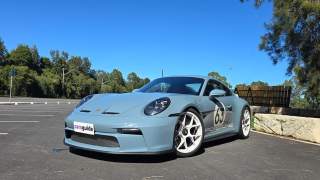Toyota has put its weight behind hybrids, disclosing plans to roll out 21 new or redesigned petrol-electric powered vehicles by the end of 2015 and playing down the near-term outlook for other alternative-fuel technologies such as all-electric cars.
The Japanese carmaker predicted its sales of hybrid models worldwide will likely top 1 million this year and to 2015. While the rollout and forecast signal Toyota's confidence in its hybrid strategy, the company acknowledges costs must still be cut further to increase profitability and spur sales. "Profits from conventional (petrol) powered cars are still higher, so we need to reduce hybrid costs more in order to promote their diffusion,'' said Toyota's vice-chairman and R&D head, Takeshi Uchiyamada.
Hybrids are becoming more mainstream in Japan. Toyota's sales of the petrol-electric vehicles last year reached 310,000, or 26 per cent of sales. But they remain a niche in other key markets such as the US. Last year, Toyota sold 178,587 hybrid models in the US, just a fraction of the 1.64 million vehicles it sold there overall in 2011.
The Japanese carmaker has high hopes for its "plug-in'' hybrid, which can be refuelled at a petrol station or by plugging in to a standard electrical outlet. Cumulative sales of its Prius PHV, which made its debut this year, reached 15,600 last month, including 8400 in Japan, 6100 in the US and 1100 in Europe. At the same, time Toyota plans to sell just 100 models of its newest electric vehicle, a subcompact EV called eQ.
That contrasts with rival Nissan, which has bet big on EVs with its Leaf compact. Mr Uchiyamada said Toyota was moving ahead with plans to localise production in China of hybrid engines by 2015 and hoped to follow suit in the US, but said the carmaker had made no decision yet. "We are looking into it, but we haven't reached a formal decision or made any specific plans,'' Mr Uchiyamada said.
This year, the company announced plans to shift production of its Highlander SUV hybrid to a plant in Indiana, in the US, but the core engine components -- such as motors, batteries and converters -- will continue to be exported from Japan. Beyond the main thrust into hybrids, Japan's No 1 carmaker also laid out its strategy in other fields of environmental technology, such as all-electric and fuel cell-powered vehicles.
Toyota is tiptoeing into EVs with its first sales this year and it won't begin commercial sales of a fuel-cell vehicle for at least three years. Mr Uchiyamada indicated that proprietary technology made FCVs hold more promise than EVs. "Anybody can make EVs but that is not the case for FCVs,'' he said. ``So we see a lot more potential in FCVs.''
Toyota will begin sales of a compact SUV with an electric engine made by Tesla. The company also will introduce its eQ to clients such as local governments in the US and Japan in December and China some time next year, but sales of the $US46,146 ($44,260) vehicle will be limited to 100 units.
The carmaker said it would launch a fuel cell-powered sedan "around 2015'' in Japan, North America and Europe, and collaborate with subsidiary Hino to debut a fuel-cell bus in 2016. It projected sales of FCVs in the "tens of thousands'' by the 2020s.
Separately, Panasonic said it would provide Toyota with lithium-ion batteries for the eQ. Panasonic has a track record with batteries used in eco-friendly vehicles, demand for which is growing amid environmental concerns and higher oil prices. Panasonic has supplied lithium-ion batteries for Toyota's Prius Plug-in and Prius Alpha hybrids.














Comments